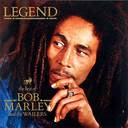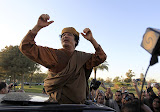Africa Day 2012: a moment for reflection & celebration
 |
| Late Dr. Nkrumah |
25th May is
Africa Day. For many years it has been a celebration of African unity. It dates
back to 1963 when the Organisation of African Unity (OAU) was founded in Ethiopia on the
25th of May. Before then 15th April, which marked the first Conference of
Independent African States held in Ghana in 1958, was upheld as
African Freedom Day.
The
significance of the Day was to reflect the aspirations of people to break free
from the chains of colonial bondage by dint of a collective will. Also, it was
meant to help raise political awareness around the world about the state of
affairs in Africa and the self-determination
of its people.
Within years, the African Freedom Day was renamed African Liberation Day and the date changed from 15th April to 25th May following the establishment of the OAU. By this time the number of independent African countries had risen from 8 in 1958 to a little over 30 in 1963. When the African Union succeeded the OAU in July 2002 the African Liberation Day became known as Africa Day and has since been a statutory holiday in many African countries.
The value of Africa Day is in the unity it enjoins. Artificial boundaries impacted by colonialism have knifed through ethnic nationalities and left the continent balkanised in sovereign entities that are hardly viable individually and economically in a competitive global environment. The celebration of Africa Day throughout the continent is recognition that these boundaries are indeed superficial. Africans are one people with a shared destiny that is better served by unity of purpose, of economies and ideally of politics.
Importantly, Africa Day occasions a moment for reflection. Africa is one stereotyped continent that continues to evoke gruelling images of poverty, gory scenes of famines, blighted tales of corruption, tragic narratives of civil conflicts and a damning prognosis of outright dismissal. Simply, pessimists cannot envisage a foreseeable solution to the crisis presented by the sum of Africa's misfortunes.
Recent stories of coup d'états in Mali and Guinea Bissau, the cross-border conflict between the Sudan and South Sudan and the never ending civil war in DR Congo are some of the human made catastrophes fuelling inane platitudes and lending credence to vapid pessimism. Yet, even though none of these negative ravages is neither entirely African doing nor a result of chance and coincidence the magnitude warrants concern and sober reflection.
The natural resources of the world’s poorest continent are a gold mine which has never ceased to tantalise predators outside the continent and their surrogates within. Africa is said to possess 99% of the world’s chrome resources, 85% of its platinum, 70% of its tantalite, 68% of its cobalt, 54% of its gold plus significant oil and gas reserves.
The continent is also home to uranium, manganese, diamonds and bauxite deposits in very high quantities. Timber and other forests resources add to the lure including massive underground water reserves discovered in some of the driest parts of the continent.
Africa’s vulnerability has been intrinsically linked to its rich resources and a history of colonialism for which the resources provided bait. Many of the civil wars that are still fought today have their genesis palpably in the struggle for control and appropriation of African wealth. In what is known as resource curse theory the blame has been incongruously vented on the resources themselves rather than on the greed of bloodsucking marauders and their cohorts. It certainly calls for reflection.
At the same time, Africa Day deserves celebrating. It celebrates African diversity and mutuality, its culture and identity, its history and heritage, its achievements and excellence and its potential and promise.
A little over fifty years ago, and with the possible exception of Ethiopia and Liberia, the entire continent was colonial territory in which the peoples were subjected to indignities and killings administered by foreign powers ironically claiming to be democratic and civilised. Assimilation, colour bar and apartheid epitomised some of the monstrous evils of colonial rule in Africa.
Thanks to resolute courage and dogged determination, all 54 countries in the continent fly their own flags and sing their own national anthems today. The vestiges of colonialism notwithstanding Africans have relatively much greater opportunity to chart a cause of progress for themselves and by themselves.
Africa illuminates hope. Between 2000 and 2010 six of the ten fastest growing economies were African and Angola grew faster than any other in the world. Poverty rate has been on the decline by about 1% every year. Educational opportunities have expanded and more girls are in school. In 2010 Africa did the hitherto unthinkable when it played host to the World Cup. Even more unthinkable was when Angola poured its oil money into debt-ridden Portugal in 2011 to salvage the former colonial power from economic collapse.
In July 2009 United States President Obama voted Ghana the ‘golden child’ of democracy with a visit within months of taking office. But Ghana is not alone in trail blazing democracy and good governance in the continent. Senegal recently recorded free and fair election in which the concession of the incumbent to defeat surpassed expectations. Botswana, the least corrupt country in Africa according to Transparency International, has been exemplary in democracy for many years. Everywhere in the continent a wind of representative governance blows auspiciously and deserves celebration.
Africa Day has become a global phenomenon. The African Diaspora and those who share the vision of a peaceful and prosperous Africa have made it so. Many have already put in place arrangements for celebrating this unique Day across the world this year. The African Communities Forum Inc in New Zealand will be celebrating under the theme “Celebration of African Diversity, Celebration of Oneness and Celebration of Success”.
In the United Kingdom the Pan African Congress Movement will do the same albeit under a separate theme “Save Our Youths, Save Africa”. Similarly the London Business School will be looking at “Africa, Taking Ownership: Successes & Challenges” while the Swedish Trade Council will be focusing on Business Opportunities in sub-Saharan Africa.
For Africa and Africans, Africa Day is that constant reminder of a common history of slavery and colonialism, the sign of a shared heritage and culture, the symbol of fraternity in the struggle for real progress in peace and development, and a rallying call to mobilise opinion and join effort for the acceleration of African integration and ultimate unity.
A
t Humanitas Afrika we wish Africans at home and in the Diaspora the enabling environment they cherish for the realisation of their hopes and dreams for a truly united Africa. Happy Africa Day!
Within years, the African Freedom Day was renamed African Liberation Day and the date changed from 15th April to 25th May following the establishment of the OAU. By this time the number of independent African countries had risen from 8 in 1958 to a little over 30 in 1963. When the African Union succeeded the OAU in July 2002 the African Liberation Day became known as Africa Day and has since been a statutory holiday in many African countries.
The value of Africa Day is in the unity it enjoins. Artificial boundaries impacted by colonialism have knifed through ethnic nationalities and left the continent balkanised in sovereign entities that are hardly viable individually and economically in a competitive global environment. The celebration of Africa Day throughout the continent is recognition that these boundaries are indeed superficial. Africans are one people with a shared destiny that is better served by unity of purpose, of economies and ideally of politics.
Importantly, Africa Day occasions a moment for reflection. Africa is one stereotyped continent that continues to evoke gruelling images of poverty, gory scenes of famines, blighted tales of corruption, tragic narratives of civil conflicts and a damning prognosis of outright dismissal. Simply, pessimists cannot envisage a foreseeable solution to the crisis presented by the sum of Africa's misfortunes.
Recent stories of coup d'états in Mali and Guinea Bissau, the cross-border conflict between the Sudan and South Sudan and the never ending civil war in DR Congo are some of the human made catastrophes fuelling inane platitudes and lending credence to vapid pessimism. Yet, even though none of these negative ravages is neither entirely African doing nor a result of chance and coincidence the magnitude warrants concern and sober reflection.
The natural resources of the world’s poorest continent are a gold mine which has never ceased to tantalise predators outside the continent and their surrogates within. Africa is said to possess 99% of the world’s chrome resources, 85% of its platinum, 70% of its tantalite, 68% of its cobalt, 54% of its gold plus significant oil and gas reserves.
The continent is also home to uranium, manganese, diamonds and bauxite deposits in very high quantities. Timber and other forests resources add to the lure including massive underground water reserves discovered in some of the driest parts of the continent.
Africa’s vulnerability has been intrinsically linked to its rich resources and a history of colonialism for which the resources provided bait. Many of the civil wars that are still fought today have their genesis palpably in the struggle for control and appropriation of African wealth. In what is known as resource curse theory the blame has been incongruously vented on the resources themselves rather than on the greed of bloodsucking marauders and their cohorts. It certainly calls for reflection.
At the same time, Africa Day deserves celebrating. It celebrates African diversity and mutuality, its culture and identity, its history and heritage, its achievements and excellence and its potential and promise.
A little over fifty years ago, and with the possible exception of Ethiopia and Liberia, the entire continent was colonial territory in which the peoples were subjected to indignities and killings administered by foreign powers ironically claiming to be democratic and civilised. Assimilation, colour bar and apartheid epitomised some of the monstrous evils of colonial rule in Africa.
Thanks to resolute courage and dogged determination, all 54 countries in the continent fly their own flags and sing their own national anthems today. The vestiges of colonialism notwithstanding Africans have relatively much greater opportunity to chart a cause of progress for themselves and by themselves.
Africa illuminates hope. Between 2000 and 2010 six of the ten fastest growing economies were African and Angola grew faster than any other in the world. Poverty rate has been on the decline by about 1% every year. Educational opportunities have expanded and more girls are in school. In 2010 Africa did the hitherto unthinkable when it played host to the World Cup. Even more unthinkable was when Angola poured its oil money into debt-ridden Portugal in 2011 to salvage the former colonial power from economic collapse.
In July 2009 United States President Obama voted Ghana the ‘golden child’ of democracy with a visit within months of taking office. But Ghana is not alone in trail blazing democracy and good governance in the continent. Senegal recently recorded free and fair election in which the concession of the incumbent to defeat surpassed expectations. Botswana, the least corrupt country in Africa according to Transparency International, has been exemplary in democracy for many years. Everywhere in the continent a wind of representative governance blows auspiciously and deserves celebration.
Africa Day has become a global phenomenon. The African Diaspora and those who share the vision of a peaceful and prosperous Africa have made it so. Many have already put in place arrangements for celebrating this unique Day across the world this year. The African Communities Forum Inc in New Zealand will be celebrating under the theme “Celebration of African Diversity, Celebration of Oneness and Celebration of Success”.
In the United Kingdom the Pan African Congress Movement will do the same albeit under a separate theme “Save Our Youths, Save Africa”. Similarly the London Business School will be looking at “Africa, Taking Ownership: Successes & Challenges” while the Swedish Trade Council will be focusing on Business Opportunities in sub-Saharan Africa.
For Africa and Africans, Africa Day is that constant reminder of a common history of slavery and colonialism, the sign of a shared heritage and culture, the symbol of fraternity in the struggle for real progress in peace and development, and a rallying call to mobilise opinion and join effort for the acceleration of African integration and ultimate unity.
A
t Humanitas Afrika we wish Africans at home and in the Diaspora the enabling environment they cherish for the realisation of their hopes and dreams for a truly united Africa. Happy Africa Day!
















No comments:
Post a Comment